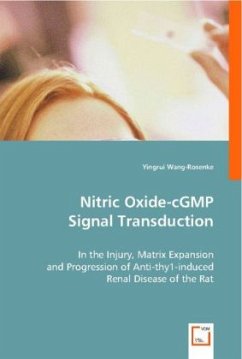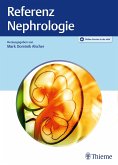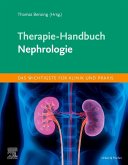Research over the last decade has shown that nitric oxide (NO) deficiency contributes to the progression of chronic renal disease. The enzyme soluble guanylate cyclase (sGC) represents the main signaling pathway of NO via generation of cyclic guanosine monophosphate (cGMP). The expression and activity of sGC are highly regulated at the transcriptional level during the course of renal fibrosis, and correlate closely with the pathological changes from the injury over the matrix expansion toward the final progression phase. The results indicated that the pathophysiologic phenotype of NO deficiency results not only from reduced synthesis of NO, but also from the impaired subsequent production of its signaling molecule cGMP. Further pharmacologic sGC stimulation reduced TGF-beta overexpression and extracellular matrix accumulation and limited the progressive course of this model towards tubulointerstitial fibrosis and impaired renal function at least in part in a blood pressure-independent manner. Beyond the models of anti-thy1-induced renal disease, the results presented here are likely to open new perspectives in the understanding and treatment of renal disease in general.
Bitte wählen Sie Ihr Anliegen aus.
Rechnungen
Retourenschein anfordern
Bestellstatus
Storno








